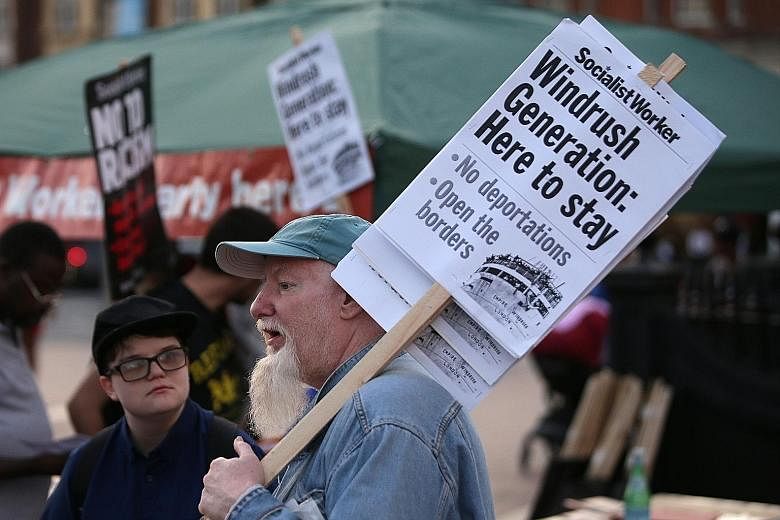LONDON • Invited to Britain from Caribbean countries after World War II to fill labour shortages and help rebuild the economy, members of the so-called "Windrush generation" were given a legal right to remain by way of a 1971 law.
Almost half a million people left their homes in the West Indies to live in Britain between 1948 and 1970, according to Britain's National Archives.
Named after the British ship Empire Windrush, which arrived at Tilbury Docks in Essex with 492 Caribbean passengers in 1948, the Windrush immigrants never formalised their status, often because they were children who came over on their parents' passports and then never applied for their own.
They received indefinite leave to remain, but many who later failed to get their papers in order have been targeted by immigration laws intended to create a "hostile environment" for illegal immigrants.
The hardline policy was pioneered after the centre-right Conservative Party retook power in 2010 by then Interior Minister Theresa May.
Some of the Windrush immigrants and their descendants who have called Britain their home for their entire lives were caught out by the government clampdown.
Some were denied access to work and healthcare, detained and threatened with deportation.
Outrage over the plight of the migrants - some of whom lost jobs and fell into debt as they struggled to prove their status - led to a personal apology from Mrs May, now Prime Minister, to Caribbean leaders at the Commonwealth summit in London last month.
The crisis has cast Britain in an unsympathetic light and raised awkward questions about how the aggressive pursuit of lower immigration numbers sits alongside the desire to be an outward-looking global economy.
Interior Minister Amber Rudd, who resigned on Sunday after facing mounting pressure over the crisis, said last Monday that those who arrived from the Caribbean and other Commonwealth countries before 1973, wrongly targeted over their immigration status, will be eligible for free citizenship.
She also confirmed that a compensation scheme will be set up for people who have suffered loss or damages because of their inability to show they remained in Britain legally and to access services.
AGENCE FRANCE-PRESSE, REUTERS

